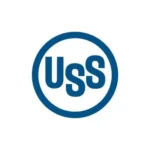Nippon Steel finalized its acquisition of U.S. Steel for $14.189 billion (¥2.03 trillion) on Wednesday, concluding an 18-month saga that exposed deep political rifts over foreign ownership of American industrial assets.
The transaction, priced at $55 per share, proceeded after President Donald Trump reversed his predecessor’s January blockade of the deal. Trump’s approval came through a National Security Agreement that grants the U.S. government a “golden share” with veto power over key corporate decisions.
The Japanese steelmaker’s corporate presentations promise $11 billion in U.S. investments by 2028 and claim the deal will “protect and create more than 100,000 jobs.” However, these projections appear optimistic given industry headwinds and lack independent verification.
The United Steelworkers union remains “unalterably opposed” to the acquisition, expressing skepticism about Nippon’s long-term commitment to union facilities. Union leaders worry the company will eventually favor non-union operations while closing integrated steel mills.
The combined entity becomes the world’s fourth-largest steelmaker, positioning Nippon to access the U.S. market strengthened by recent tariffs. Yet the company gains control of aging facilities requiring substantial capital investment at a time when steel demand faces uncertainty.
The deal’s political reversal underscores how foreign investment decisions increasingly hinge on presidential preferences rather than consistent regulatory frameworks, potentially chilling future cross-border transactions.





